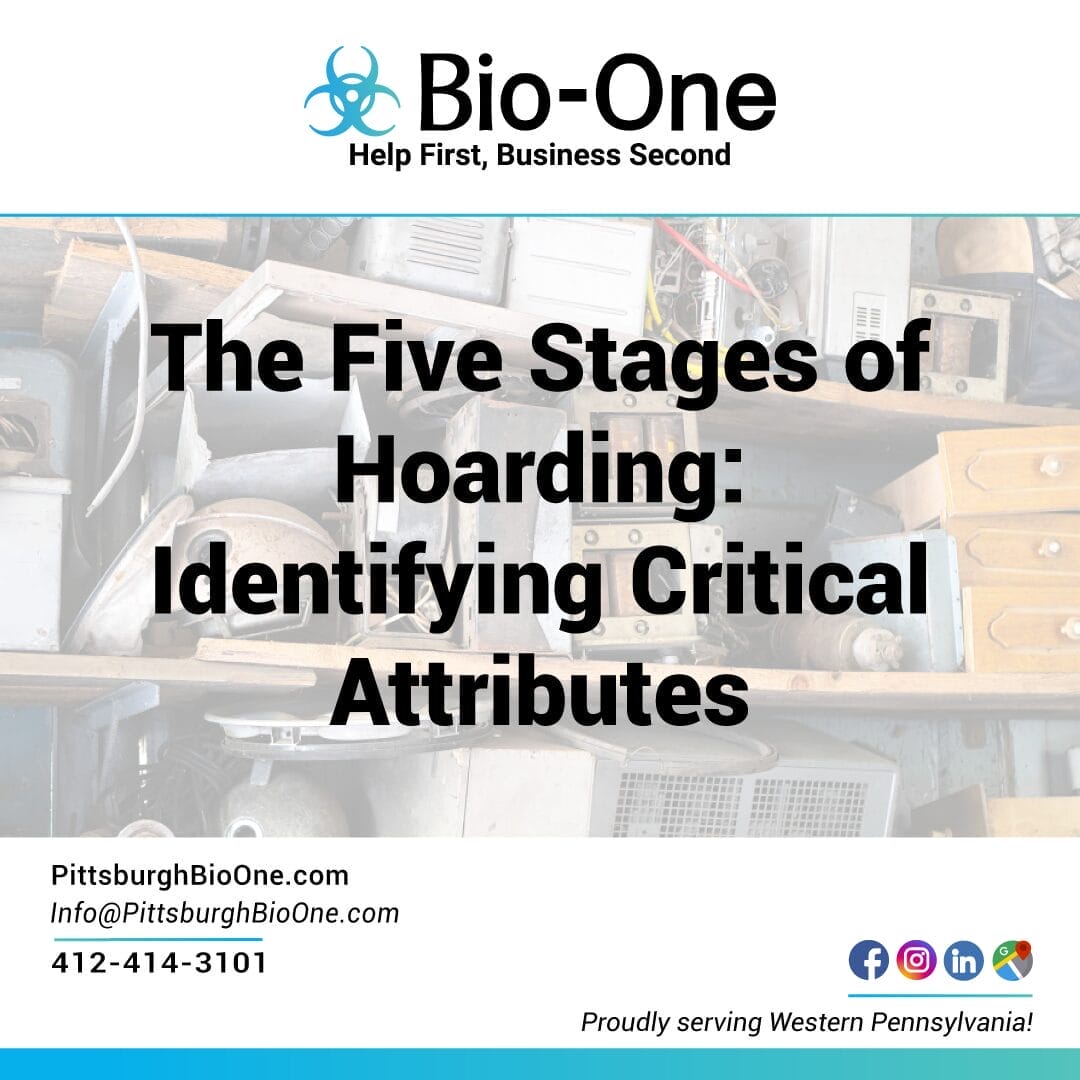
Hoarding, a mental health condition often stigmatized but little understood, is a gradual process that can significantly impact a person's life, their family, and potentially the entire community. In this comprehensive guide, we break down the five stages of hoarding, shedding light on critical attributes in each phase and offering strategies for intervention and support.
Whether you're a homeowner trying to prevent hoarding tendencies, a professional addressing hoarding with a client, or a concerned loved one, understanding these stages is the first step to tackling this challenging issue!
For many, hoarding brings to mind the reality television shows that raise awareness about this enigmatic disorder. But hoarding goes beyond what's portrayed on screen; it's a behavioral pattern that begins subtly and can evolve into a crippling situation. At the heart of hoarding is the difficulty in parting with possessions, often driven by an attachment that others might find irrational or inexplicable. Hoarders don't simply have cluttered homes — they experience a deep emotional conflict when faced with the prospect of discarding items.
Take a look at the five stages of hoarding. We hope this information serves as a roadmap for understanding and addressing hoarding behaviors in someone you know or care about.
The first stage of hoarding usually starts with a seemingly harmless habit: acquiring items. This behavior isn't problematic in and of itself, but for individuals with hoarding tendencies, it can quickly become an obsession. Compulsive buying or acquisition is often a source of comfort, control, or even excitement for hoarders. Whether it's through shopping, collecting free items, or inheriting possessions, these actions serve a psychological need, providing temporary relief from anxiety, loneliness, or other underlying issues.
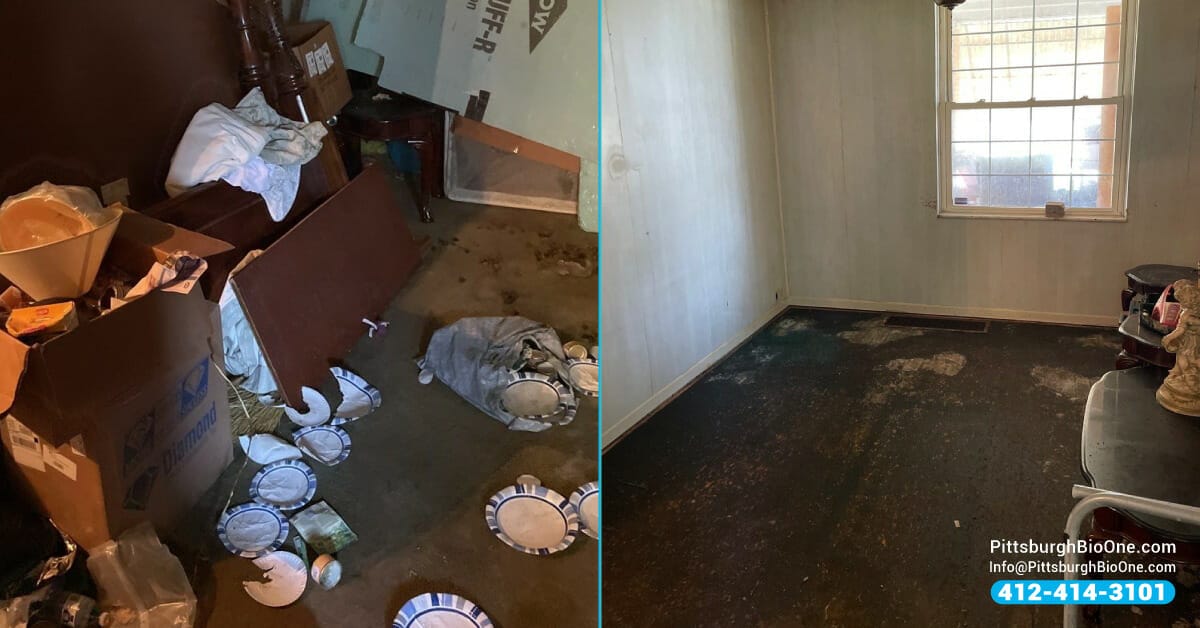
Acquired items lead to the second stage: clutter. The transition from acquisition to clutter is gradual and not often recognized until living spaces become difficult to use for their intended purpose. The accumulation of possessions encroaches on daily living, often spilling into hallways, living rooms, kitchens, and other communal areas. At this stage, organizing these items becomes a herculean task, and their sheer presence can become overwhelming.
Clutter can lead to increased stress and anxiety, as well as a sense of helplessness in those trying to live amongst it. For individuals with hoarding tendencies, every item has a perceived value or use, making decisions about what to keep and what to discard increasingly difficult. The presence of clutter also hampers basic household functions such as cooking, cleaning, and personal hygiene.
The third stage of hoarding sees a significant increase in the accumulation of items. At this point, the compulsion to acquire is fueled by the inability to sort through or discard anything, resulting in an overabundance of possessions. The living areas become fully engulfed, and every available nook and cranny is filled, often to the point of structural unsoundness.
Individuals at this stage often cite the 'just in case' rationale for keeping items. The fear that they might need something they've thrown away is almost paralyzing, so they feel compelled to keep everything. This behavior is reinforced by the perceived value and utility of the items, which further justifies their retention.

At this point, professional organizers and psychologists specializing in Hoarding Disorder can provide the necessary support. Cognitive-behavioral therapy (CBT), with a focus on exposure and response prevention, can help hoarders challenge and change their thought patterns and compulsions before the situation becomes even more overwhelming.
In the fourth stage, the hoarding behavior begins to have a noticeable impact on the person's ability to function in their daily life. The clutter and excessive accumulation make it almost impossible to lead a typical existence within their home. Basic activities such as bathing, cooking, using the bathroom, and even sleeping can become challenging or impossible.
The decline in functionality is often accompanied by a breakdown in personal hygiene. Hoarders living in unsanitary conditions can face an increased risk of illness and infestation, as clutter becomes a harbinger for pests and bacteria. Health professionals may need to become involved to address any possible physical health issues related to living in such environments.
Functional impairment can be linked to other mental health challenges, such as depression, anxiety, and other mood disorders. For many hoarders, their living conditions become a visible manifestation of their inner turmoil and a barrier to receiving essential care and support.

This is the convergence of all the previous stages of hoarding, culminating in a setting that poses not just psychological and social risks, but grave health and safety risks as well. By this point, the living environment is likely to be so hazardous that it can result in accidents, fires, and even death.
Common health risks at this stage include respiratory issues from living in clutter that prevents proper air circulation, as well as the spread of infectious diseases due to poor sanitation. Structural issues in the home can also pose dangers, and the hoarder's ability to receive emergency assistance can be severely compromised.
Hoarders in this stage might face legal consequences, especially if their home becomes a matter of public health. Their personal and social networks are often stretched to the breaking point, and the individual may become increasingly isolated as their situation deteriorates.

Understanding the stages of hoarding is vital for anyone affected by this condition. From individuals to family members, mental health professionals, and community services, a collective and informed approach can support those struggling with hoarding to reclaim their lives. Remember, the road to recovery is often long and filled with challenges, but help is available.
At Bio-One of Pittsburgh, we specialize in the cleaning and restoration of hoarder houses, working with compassion and discretion to ensure a safe and habitable home for those affected. Call our specialists and get started with help for any of the previously described stages of hoarding! It's never too soon to ask for help.
Bio-One of Pittsburgh is always ready to assist you in unexpected situations. Our expert specialists are always ready to assist you in dealing with highly pressurized situations that may be emotionally and physically draining, allowing you to focus on other vital activities while healing in a sanitary environment. Locally owned and operated, we provide the following:
Bio-One works closely with victim support centers nationwide and local authorities, communities, emergency services personnel, hoarding task forces, apartment communities, insurance companies, and other organizations to accomplish each customer's most efficient and superior service possible.
Many crime scene cleanup companies may face unexpected, unfortunate life events. Still, Bio-One is the right choice because of our expertise and profoundly caring and discreet specialists.
We are proud members of the NAPO Pittsburgh - National Association of Productivity & Organizing Professionals!
Bio-One of Pittsburgh serves the following Pennsylvania counties: Allegheny County, Washington County, Beaver County, Butler County, Armstrong County, Westmoreland County, Lawrence County, Greene County, Fayette County, and Mercer County.
We also serve the following cities and surrounding communities: from Allison Park all the way to Creighton, Crescent, Cuddy Curtisville, Millvale, Monroeville, Oakmont, Pitcairn, Pleasant Hills, Plum, Port Vue, Presto, Rankin, Rennerdale, Rural Ridge, Russellton, Sharpsburg, South Park to Springdale, we are ready to help you.

To begin a deep exploration into the realms of hoarding and collecting is to steer into what is, for many, uncharted territory – one that's as intriguing as it is complex. The subjects of hoarding and collecting often intertwine, yet they carry vastly different connotations and implications. In this post, we'll unpack the nuances of these behaviors, understand the attraction, and shed light on the potential dangers – all while offering a glimpse into the sensitive and seldom-discussed aspects of Hoarding Disorder.
At its core, collecting is an inherently human practice. Since ancient times, people have gathered objects they find beautiful, interesting, or valuable. The psychology of collecting can be as diverse as the collections themselves. Some collect to fill emotional gaps, seeking the rush of acquiring a new item to combat feelings of loneliness or inadequacy. Others collect as a form of investment or a means of expressing their tastes and identities. Whatever the reason, the act of collecting offers a connection to history, a marker of identity, and a sense of control over one’s surroundings.
The allure of collecting spans several psychological motivations. For some, it’s the thrill of the hunt, the anticipation leading up to acquiring a coveted item. The completion of a collection can bring immense satisfaction, a sense of accomplishment and control, and even validation. Each item serves as a physical reminder of the collector’s interests and aesthetic preferences, acting as an anchor for their memories and experiences.
Collecting can be an inherently social behavior, creating communities around shared interests. The internet has particularly amplified this social aspect, allowing collectors to connect globally, share advice, and display their collections online. In doing so, collectors can find a sense of belonging and recognition within their respective communities. Their collections, then, become a means of articulating their individuality and values, sometimes even functioning as a source of pride and personal legacy.

Where collecting can be an organized, purposeful pursuit, hoarding is often characterized by the accumulation of possessions to the point where living spaces become unusable. Among the many dangers of hoarding is the very real risk to one’s health and home safety. The inability to discard items can lead to fire hazards, health code violations, and unsanitary conditions.
The mass of items that hoarders accumulate often leads to homes filled beyond capacity, creating pathways through the space at best and blocked exits at worst. These conditions can result in trips and falls, respiratory problems due to dust and mold, and even more devastating consequences in the case of an emergency where rapid evacuation is necessary.
Hoarding can have profound impacts on the mental well-being of those who suffer from it, as well as on their family members who may struggle to understand and cope with the behavior. The feeling of distress when trying to discard items, anxiety about the loss of potential value or the usefulness of objects, and the growing isolation from social consequences can all contribute to a downward spiral in mental health.
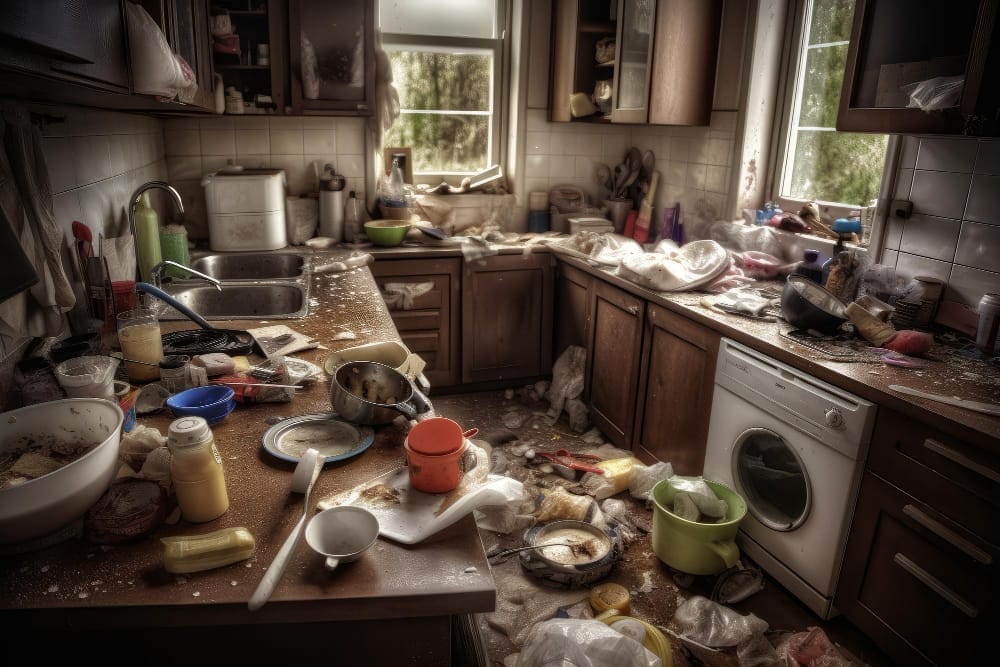
Learn more: Hoarding and Health - How Much has Hoarding Affected You? | Bio-One of Poway
The line between collecting and hoarding is not always clear-cut. For many enthusiasts, their vast arrays of items are meticulously organized and well-cared for. However, it's important to recognize that there is a spectrum of behavior, and what begins as seemingly benign collecting can, in some cases, develop into a Hoarding Disorder.
Learn more: Are Hoarding and Collecting Different? | Bio-One of Chula Vista
Whether you are the one who hoards or feels the weight of the situation as a family member or friend of a hoarder, it's important to acknowledge these feelings and seek support. Addressing hoarding behavior often requires a multifaceted approach, which may include therapy, support groups, and professional cleanup services.
One of the main concerns with hoarding is that people fail to realize they have a problem! The world of collecting and hoarding is complex, but not without hope. By understanding the allure of collecting and the dangers of hoarding, we can approach these behaviors with empathy and the necessary tools to seek help or support loved ones.
Bio-One of Pittsburgh provides discreet hoarding cleanup services to help restore a safe and healthy living environment. Don't let hoarding take over your life or the life of someone you care about. Reach out for help and start taking steps towards a happier and healthier future. Thank you for reading, and remember, you are not alone in this journey!
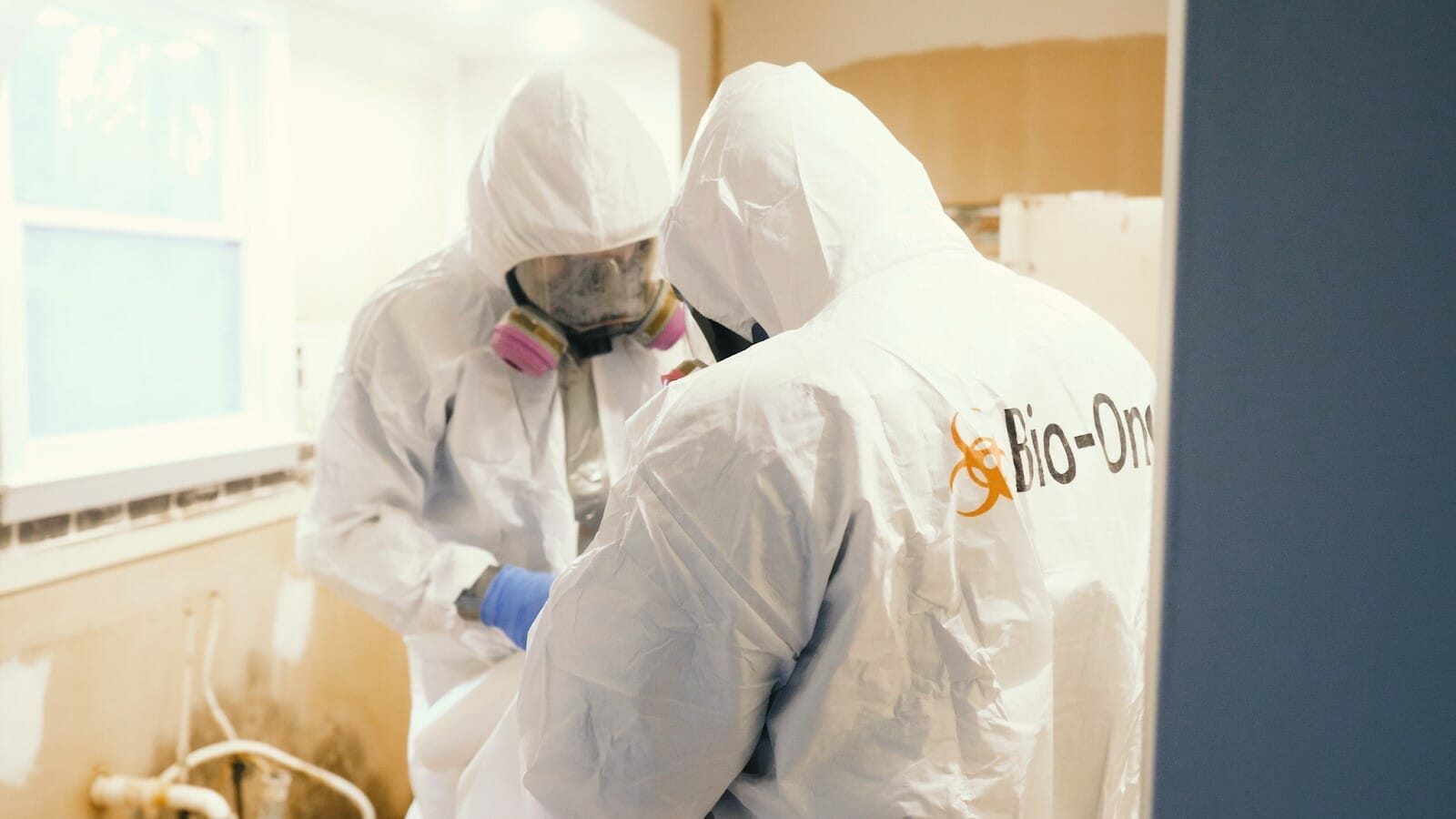
Bio-One of Pittsburgh is always ready to assist you in unexpected situations. Our expert specialists are always ready to assist you in dealing with highly pressurized situations that may be emotionally and physically draining, allowing you to focus on other vital activities while healing in a sanitary environment. Locally owned and operated, we provide the following:
Bio-One works closely with victim support centers nationwide and local authorities, communities, emergency services personnel, hoarding task forces, apartment communities, insurance companies, and other organizations to accomplish each customer's most efficient and superior service possible.
Many crime scene cleanup companies may face unexpected, unfortunate life events. Still, Bio-One is the right choice because of our expertise and profoundly caring and discreet specialists.
We are proud members of the NAPO Pittsburgh - National Association of Productivity & Organizing Professionals!
Bio-One of Pittsburgh serves the following Pennsylvania counties: Allegheny County, Washington County, Beaver County, Butler County, Armstrong County, Westmoreland County, Lawrence County, Greene County, Fayette County, and Mercer County.
We also serve the following cities and surrounding communities: from Allison Park all the way to Creighton, Crescent, Cuddy Curtisville, Millvale, Monroeville, Oakmont, Pitcairn, Pleasant Hills, Plum, Port Vue, Presto, Rankin, Rennerdale, Rural Ridge, Russellton, Sharpsburg, South Park to Springdale, we are ready to help you.
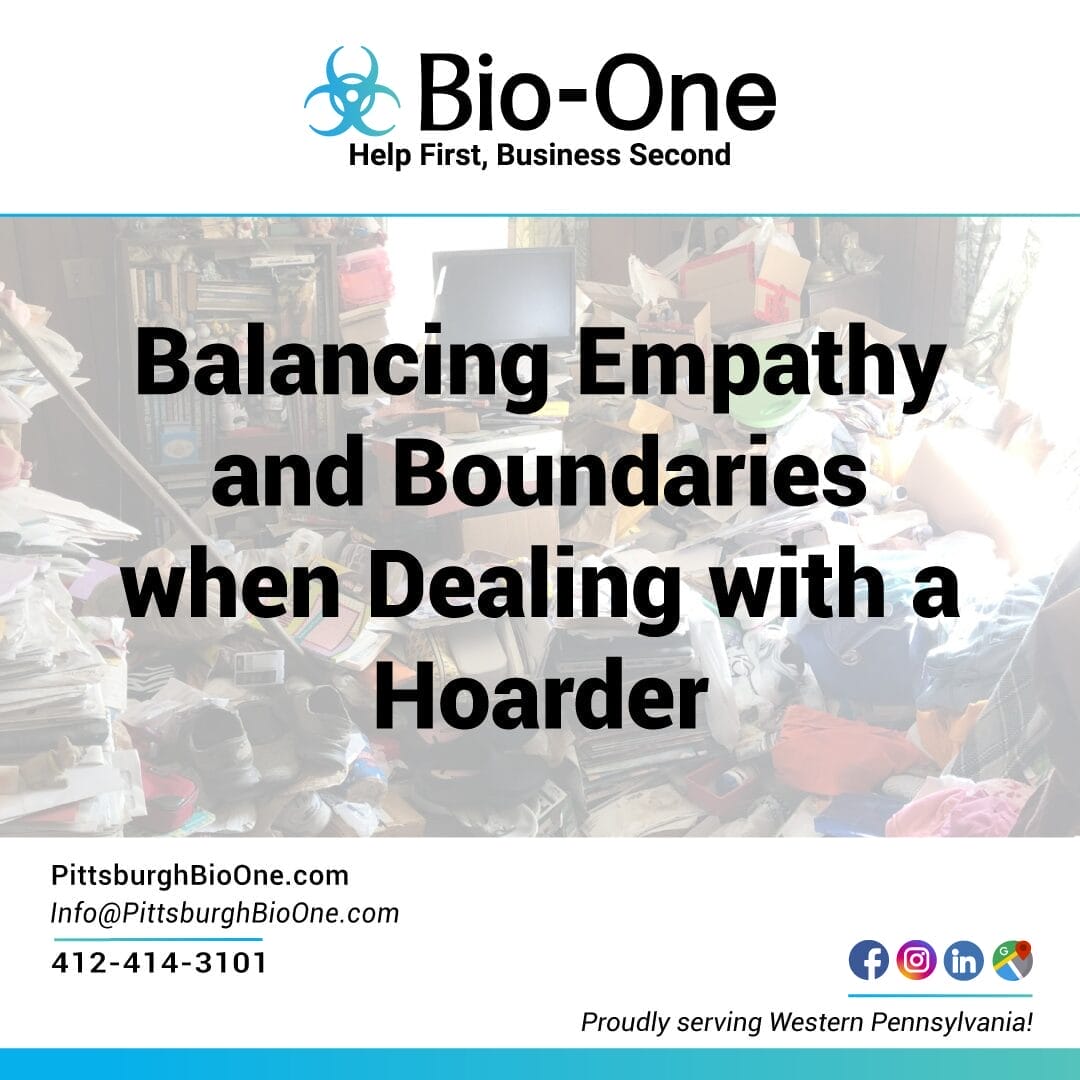
Dealing with a hoarder can be a challenging experience for anyone involved. Hoarding is a complex disorder that is often misunderstood, and it can be hard to approach loved ones about their hoarding habits. There are many ups and downs throughout the process, and it can be impossible to know the best approach for success. That's what we're here to do. In this blog post, we'll explore the challenges that come with dealing with a hoarder.
We'll discuss the importance of empathy and boundaries and how to find the balance that works for you. So, let's dive in!
One of the key components of dealing with a hoarder is understanding the disorder. Hoarding disorder is a mental illness characterized by the excessive acquisition of items, regardless of their value, and the inability to discard them. People with hoarding tendencies often feel emotionally attached to their possessions. It is vital to approach hoarding with an empathetic and understanding attitude, as hoarders may not be aware of the extent of their condition.
Helping someone with hoarding requires setting boundaries that protect both you and the hoarder. These boundaries need to be well-defined and communicated upfront. You must be honest about what you can and cannot do. For instance:
These boundaries may be difficult to set up and maintain, but they are essential for the safety and well-being of everyone involved.
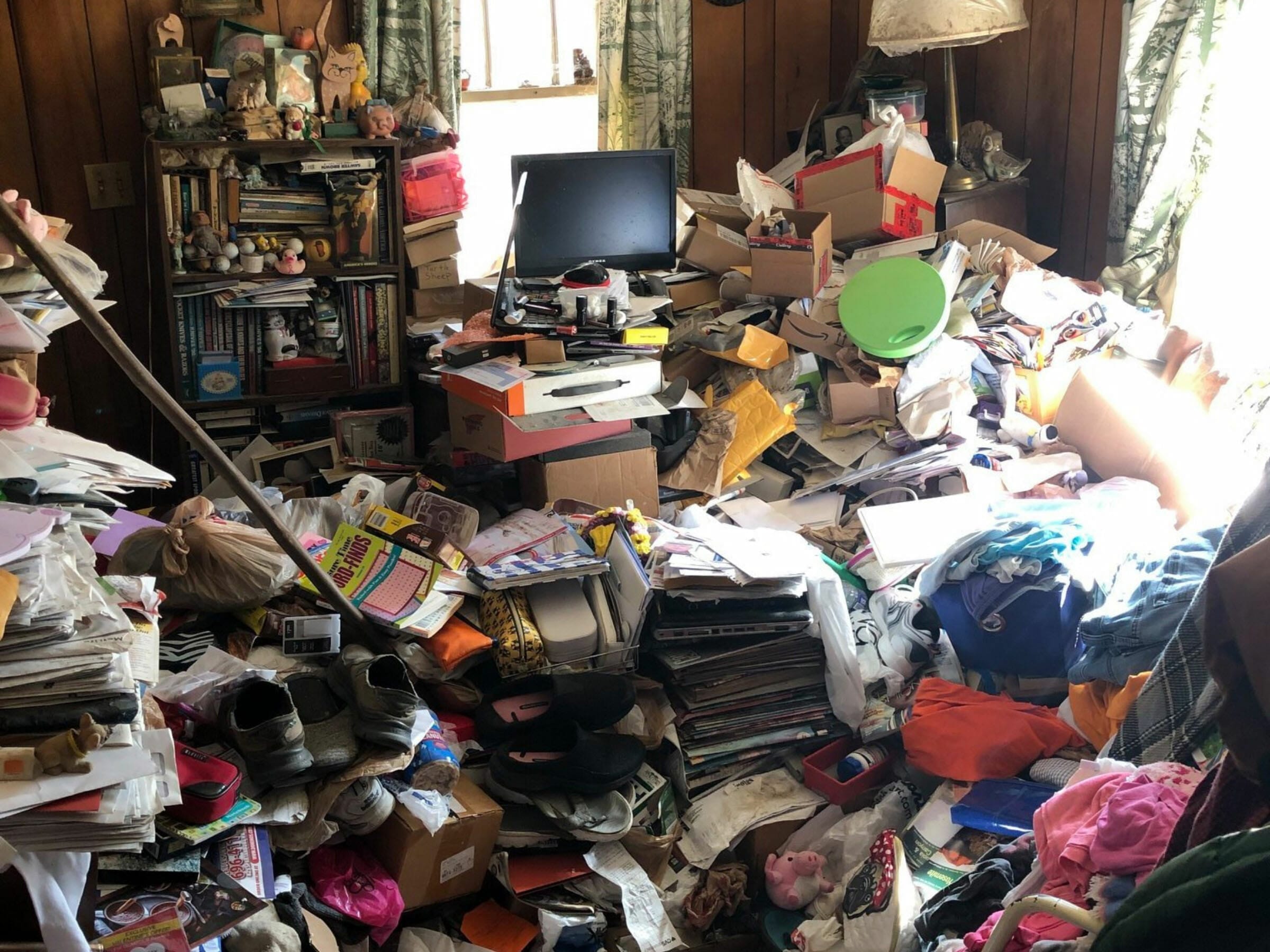
Hoarding stems from deep psychological issues, so you have to remember that it's not the hoarder’s fault. They are not intentionally creating chaos or trying to hurt anyone. Your empathy can help them feel more comfortable to reach out for help. When dealing with a hoarder, try a non-judgmental and non-confrontational approach. It will be easier for them to accept your help if they feel that you genuinely care about their well-being.
Dealing with a hoarder can be a challenging process, and it may not be something that you can manage alone. Enlisting the help of a professional is often necessary. Professional help may include a professional organizer, hoarding therapist, or hoarding cleanup company. These professionals have experience in dealing with hoarding disorders and can provide essential guidance and support.

The process of overcoming hoarding can often be filled with many setbacks. But it's important to remember that progress can be made, no matter how small! Celebrate every milestone along the way, such as discarding the first pile of clutter or organizing the kitchen counter. Small wins can help the hoarder stay motivated and could help them get a step closer to overcoming the condition.
Dealing with a hoarder can be an emotionally challenging experience. The key to finding success is a balance between empathy and boundaries. While you must be firm in setting boundaries, approaching the situation with empathy and sensitivity can make all the difference. Seeking professional help when necessary can also go a long way in the process.
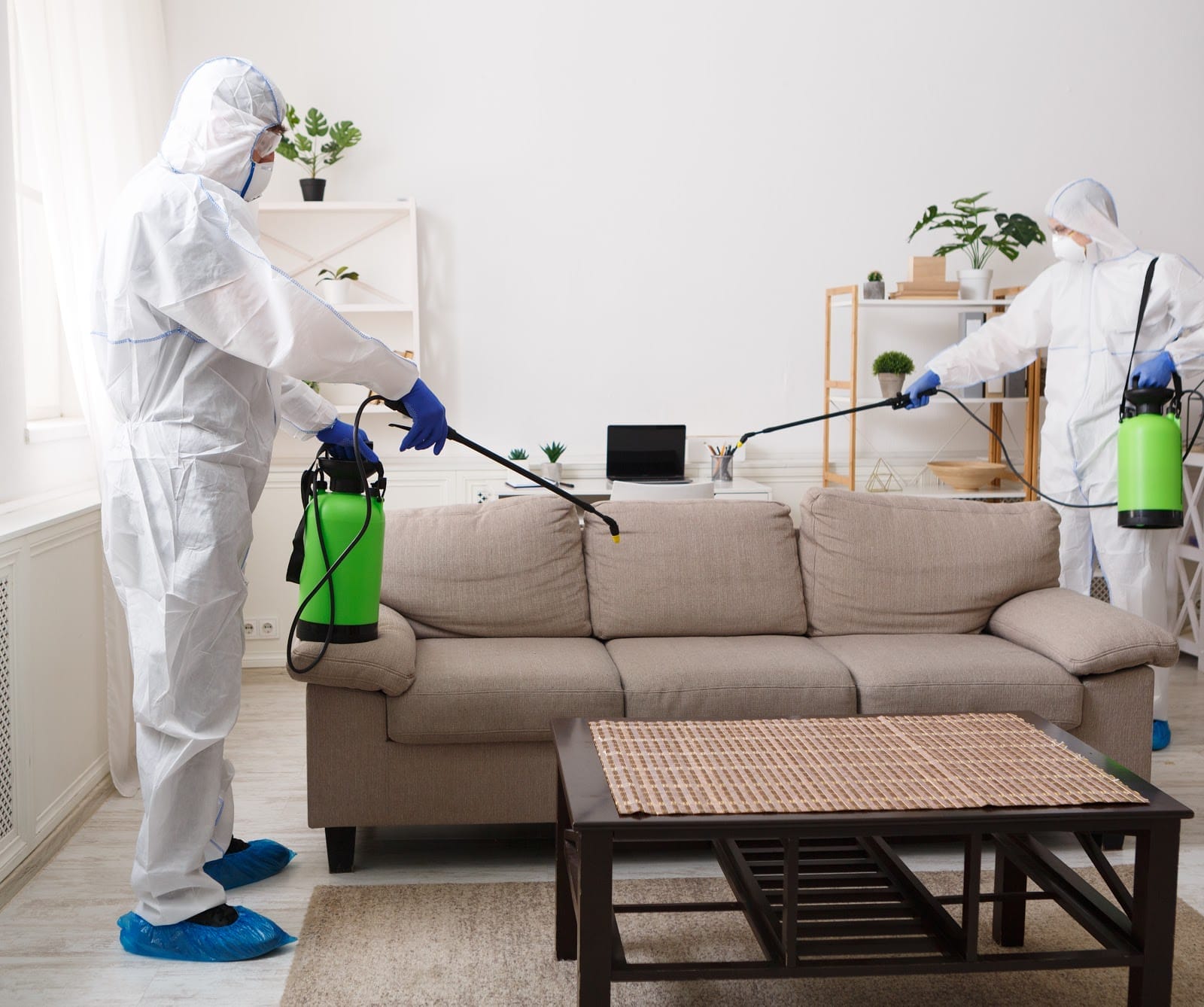
Remember to celebrate every small win along the way, as they can help the person with Hoarding Disorder remain motivated towards overcoming the disorder. Ultimately, the process requires patience, understanding, and support to succeed. If you need help, call Bio-One for help! Our team is ready to help.